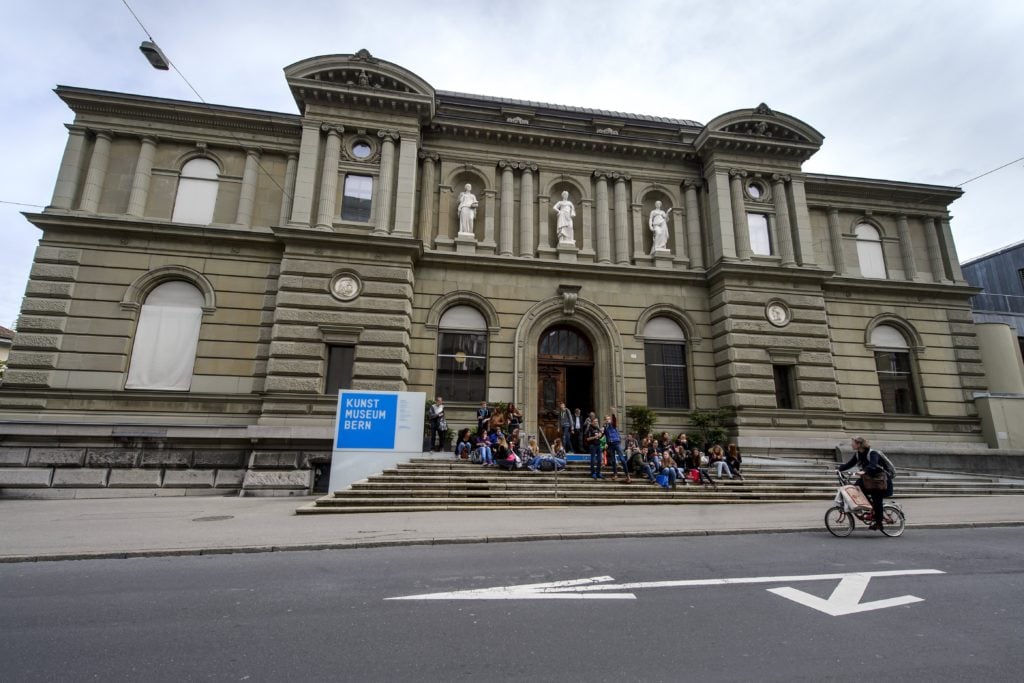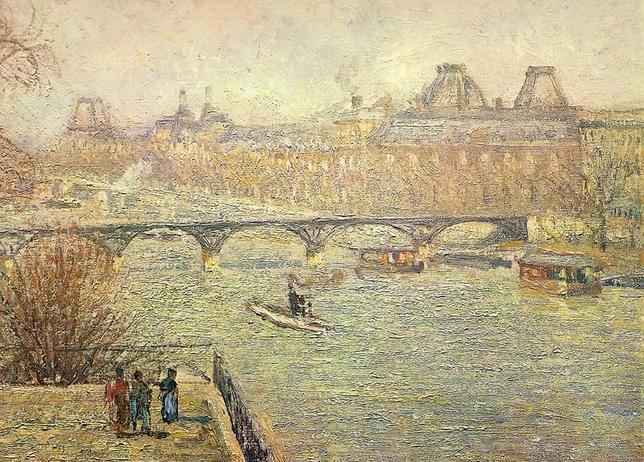Art & Exhibitions
Here’s Your Chance to See Cornelius Gurlitt’s Infamous Art Trove
The exhibition is back on track after a relative contested Gurlitt's will.
The exhibition is back on track after a relative contested Gurlitt's will.
Sarah Cascone

Art lovers will finally have the chance to see the infamous Gurlitt art trove in person, as two museums will stage exhibitions featuring hundreds of the roughly 1,500 artworks that Cornelius Gurlitt, the reclusive son of an art dealer who collaborated with the Nazis, kept hidden away in properties in Munich and Salzburg for decades.
Gurlitt’s secret stash, amassed by his father Hildebrand, was discovered by the German authorities during a 2012 tax investigation. Shortly before he died in 2014, Gurlitt bequeathed the entirety of his collection, featuring such greats as by Pablo Picasso, Claude Monet, Marc Chagall, Paul Cézanne, Ernst Ludwig Kirchner, Otto Dix, and Gustave Courbet, to the Kunstmuseum Bern.
To present the long-unseen works, the Bern institution is collaborating with the Bundeskunsthalle, Bonn, in Germany. Both shows will open in November 2017.

The Museum of Fine Arts (Kunstmuseum) of Bern is pictured on May 8, 2014. The museum said it was shocked to learn that Cornelius Gurlitt, the son of a Nazi-era art dealer, had left it a disputed hoard of priceless paintings—some thought to have been plundered from Jews. One day after the death of Cornelius Gurlitt, aged 81, his lawyer told the Museum of Fine Arts in the western Swiss city of Bern that it was the sole heir of the German’s spectacular collection. Photo courtesy of Fabrice Coffrini/AFP/Getty Images.
The upcoming exhibitions represent the successful resolution to a long-running legal battle over the fate of the collection. Gurlitt’s family had argued that the will was invalid due to his diminished mental capacity, but a Munich court ruled in the museum’s favor in December. The shows were initially announced in April, but were delayed due to the court proceedings.
Of course, other issues are still at play, as the German state continues investigations into the provenance of the collection and identifies possible Nazi-looted works. To date, the task force has only identified the rightful owners of five of the pieces in the collection.

Camille Pissarro’s La Seine vue du Pont-Neuf, au fond le Louvre (1902) has been found in Gurlitt’s collection and determined as Nazi-looted. Courtesy of the Kunstmuseum Bern.
The two exhibitions will share a joint title of “Dossier Gurlitt.” In Bern, the focus will be on “‘Degenerate Art,’ Confiscated and Sold.” Kunstmuseum Bern director Nina Zimmer and director of collections Matthias Frehner, author of Modern Masters: ‘Degenerate Art’ at the Kunstmuseum Bern, will curate with Georg Kreis, a historian at the University of Basel.
The Bonn presentation is titled “Nazi Art Theft and Its Consequences,” and will focus on the persecution of Jewish art collectors and dealers, and the works stolen from them during World War II. Bundeskunsthalle director Rein Wolfs will organize the show with curator Agnieszka Lulinska.
Wolfs told the New York Times that the Bonn show will feature about 150 works, mostly from the Gurlitt collection, to the Bern exhibition’s 100. Due to the ongoing work of investigators, none of the works with existing provenance questions will leave Germany for the exhibition.
The Bonn exhibition is slated to travel to the Kunstmuseum Bern in spring of 2018 and Berlin’s Martin Gropius Bau that fall. A joint publication will document both shows.
“Dossier Gurlitt: ‘Degenerate Art,’ Confiscated and Sold” will be on view at the Kunstmuseum Bern, Hodlerstrasse 8, 3011 Bern, Switzerland, November 2, 2017–March 4, 2018. “Dossier Gurlitt: Nazi Art Theft and Its Consequences” will be on view at the Bundeskunsthalle, Bonn, Friedrich-Ebert-Allee 4, 53113 Bonn, Germany, November 3, 2017–March 11, 2018.